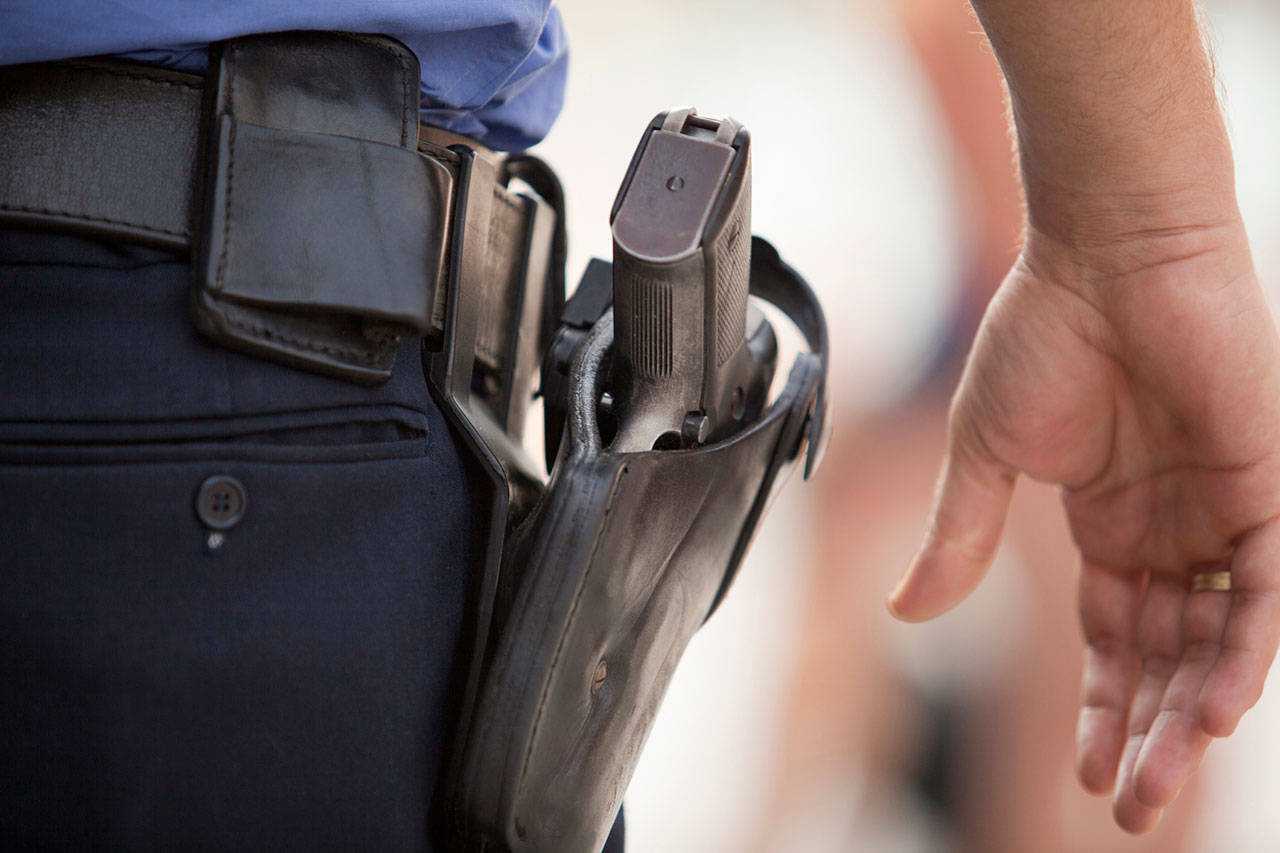By The Herald Editorial Board
Initiative 940 becomes law today. The measure passed with nearly 60 percent statewide support and majority support in many of the state’s rural counties in the Nov. 6 general election.
Yet state lawmakers already have plans to change it.
That’s as it should be, and it’s what both supporters and opponents of the ballot measure have asked the Legislature to do.
I-940 has established standards and policies to address law enforcement officer-involved shootings, adding de-escalation and mental health training requirements and rewriting the standard for the use of deadly force. Before today, Washington state law shielded officers from prosecution so long as they acted “without malice,” a standard that no other state in the nation uses, and one that made it difficult to prosecute unjustified shootings by officers.
With I-940 having won the support of more than 1.8 million state voters, you might expect that De-Escalate Washington and other organizations supporting I-940 would celebrate a significant policy change for public safety and move on to other issues. Instead, the measure’s supporters have joined with law enforcement groups and others to seek immediate revisions to the law that I-940 establishes.
Representatives of both sides — who before the election were arguing separate cases before voters — sat alongside each other earlier this week at a House Public Safety Committee work session in Olympia in support of legislation that would restore a compromise version of I-940’s language that was negotiated this year.
The problem with the compromise wasn’t its provisions but the unconstitutional manner in which lawmakers adopted it and I-940 in an attempt to avoid putting either measure before the voters. The state constitution constrains lawmakers to three choices when addressing initiatives to the Legislature: They can approve the initiative as written; reject it or do nothing, in which case the initiative appears on the ballot; or they can propose an alternative and place it and the initiative on the same ballot and allow voters to choose which will become law, if either.
Instead, lawmakers gave themselves a fourth option: adopting the initiative, then amending it in the same session.
That drew a lawsuit and a state Supreme Court decision that placed I-940 on the ballot.
Now that the voters have weighed in, lawmakers can go back and make the changes that they negotiated earlier with I-940 supporters and representatives of law enforcement.
The proposed legislation, which closely resembles the bill that both sides collaborated on, is seen by those involved as improving and clarifying the language of I-940, without making significant changes to its intent:
It simplifies I-940’s language regarding the use of deadly force, weighing an officer’s actions against what a “reasonable officer” would do in the same situation, making it easier for law enforcement and the community to understand.
It requires additional de-escalation and mental health training for police, without making the training a condition of continued employment.
It clarifies the language requiring first aid for those injured in a shooting at the earliest safe opportunity.
And it provides for reimbursement of legal costs for officers charged in a shooting who are found not guilty or when charges have been dismissed.
Monisha Harrell, chairwoman of Equal Rights Washington and a member of the De-Escalate Washington coalition, at Monday’s committee work session, explained that she and others were asking for changes to the initiative because there’s more work ahead that can now be accomplished alongside representatives of law enforcement, prosecutors and the courts.
“We recognize that this is the beginning of very meaningful relationships to be able to do more of this work and to do it not at odds with each other but in support of each other,” Harrell told the committee.
Law enforcement groups, including the Washington Association of Sheriffs and Police Chiefs, Washington Council of Police and Sheriffs and state Fraternal Order of Police echoed Harrell’s hope for further work.
Those within De-Escalate Washington and law enforcement deserve praise for their willingness to collaborate to seek good, workable law that improves public safety and creates a reasonable standard that better guides police in a demanding and dangerous job.
Despite this year’s legislative hiccup — and assuming the Legislature passes the bill to amend I-940 quickly — the work among community members, law enforcement and lawmakers serves as a template for continued work on issues related to public safety and criminal justice.
And it should serve as a model for resolving contentious issues nationwide.
Talk to us
> Give us your news tips.
> Send us a letter to the editor.
> More Herald contact information.

























